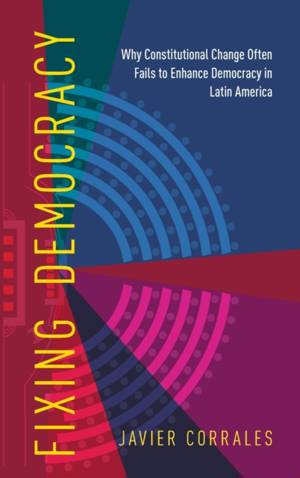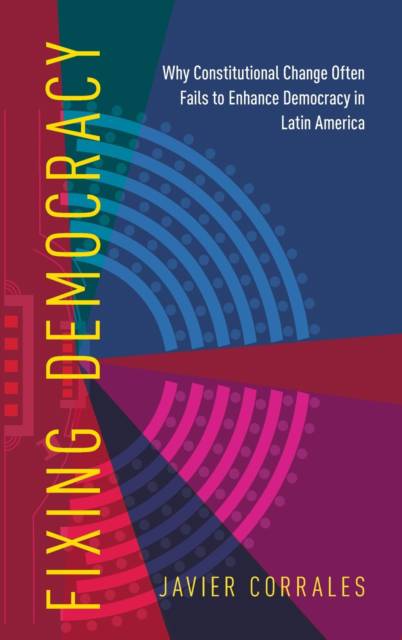
- Afhalen na 1 uur in een winkel met voorraad
- Gratis thuislevering in België vanaf € 30
- Ruim aanbod met 7 miljoen producten
- Afhalen na 1 uur in een winkel met voorraad
- Gratis thuislevering in België vanaf € 30
- Ruim aanbod met 7 miljoen producten
Zoeken
Fixing Democracy
Why Constitutional Change Often Fails to Enhance Democracy in Latin America
Javier Corrales
Hardcover | Engels
€ 139,45
+ 278 punten
Uitvoering
Omschrijving
The study of institutions, a core concept in comparative politics, has produced many rich and influential theories on the economic and political effects of institutions, yet it has been less successful at theorizing their origins. In Fixing Democracy, Javier Corrales develops a theory of institutional origins that concentrates on constitutions and levels of power within them. He reviews numerous Latin American constituent assemblies and constitutional amendments to explore why some democracies expand rather than restrict presidential powers and why this heightened presidentialism discourages democracy. His signal theoretical contribution is his elaboration on power asymmetries. Corrales determines that conditions of reduced power asymmetry make constituent assemblies more likely to curtail presidential powers, while weaker opposition and heightened power asymmetry is an indicator that presidential powers will expand. The bargain-based theory that he uses focuses on power
distribution and provides a more accurate variable in predicting actual constitutional outcomes than other approaches based on functionalism or ideology. While the empirical focus is Latin America, Fixing Democracy contributes a broadly applicable theory to the scholarship both institutions and democracy.
distribution and provides a more accurate variable in predicting actual constitutional outcomes than other approaches based on functionalism or ideology. While the empirical focus is Latin America, Fixing Democracy contributes a broadly applicable theory to the scholarship both institutions and democracy.
Specificaties
Betrokkenen
- Auteur(s):
- Uitgeverij:
Inhoud
- Aantal bladzijden:
- 286
- Taal:
- Engels
Eigenschappen
- Productcode (EAN):
- 9780190868895
- Verschijningsdatum:
- 26/06/2018
- Uitvoering:
- Hardcover
- Formaat:
- Genaaid
- Afmetingen:
- 236 mm x 160 mm
- Gewicht:
- 576 g

Alleen bij Standaard Boekhandel
+ 278 punten op je klantenkaart van Standaard Boekhandel
Beoordelingen
We publiceren alleen reviews die voldoen aan de voorwaarden voor reviews. Bekijk onze voorwaarden voor reviews.











